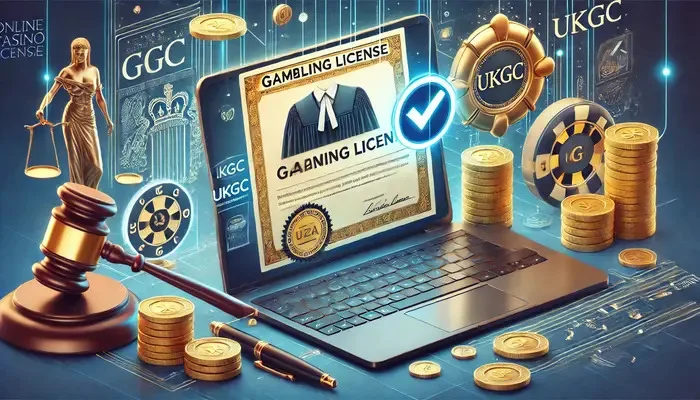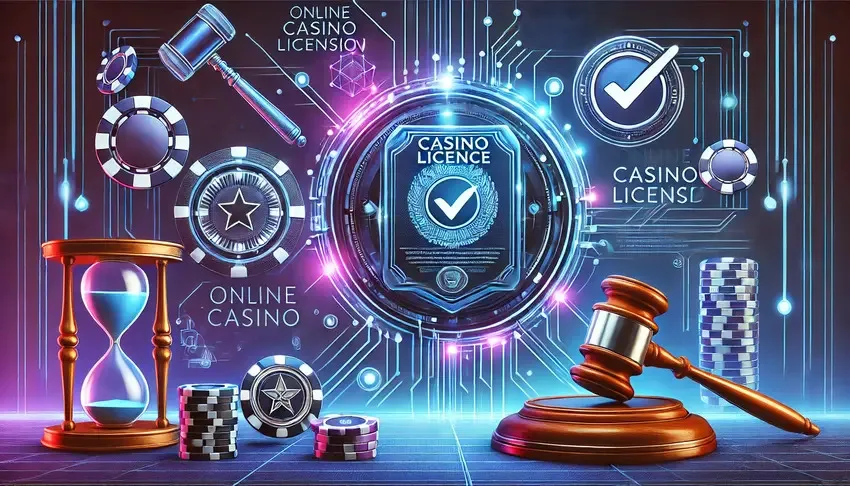
Step-by-Step Guide to Creating Texts About Casino Licences
Online gambling has become a massive industry, and players need to understand the importance of casino licences before engaging in real-money games. A well-regulated casino ensures fair play, secure transactions, and legal accountability. Writing about casino licences requires accuracy, structure, and an understanding of the regulatory landscape. This guide provides a comprehensive approach to crafting high-quality texts about casino licences while incorporating keywords like Grosvenor casinos and Grosvenor casino slots.
Importance of Licence in Online Casinos
A valid gambling licence is essential for any online casino, as it demonstrates that the operator adheres to strict legal and regulatory standards aimed at protecting players and maintaining the integrity of the gambling industry. Without proper licensing, a casino may be operating outside the law, increasing the risk of unfair gaming algorithms, lack of responsible gambling measures, delayed or denied payouts, and poor data protection practices. Reputable operators typically hold licences from well-known and respected regulatory bodies such as the UK Gambling Commission, Malta Gaming Authority, or Curaçao eGaming. These authorities require rigorous testing, regular audits, and strict compliance with transparency, fairness, and player safety protocols, giving users confidence that the games offered are legitimate and that their funds and personal data are handled securely and ethically.
Licences provide legal protection for players by enforcing rules on responsible gambling, dispute resolution, and financial transactions. When a casino is licensed, it must comply with laws designed to protect consumers from fraud, identity theft, and unfair gaming outcomes. This is particularly important for slot enthusiasts looking to play at reputable platforms like Grosvenor casino slots, where licensing ensures credibility.
Additionally, having a licence helps build trust between the casino and its players. Licensed casinos undergo frequent audits and are required to follow fair gaming practices. This means that players can be assured of randomised game results and secure withdrawal options. When writing about casino licences, highlighting these aspects helps provide valuable insights to readers.
Main Regulators and Types of Online Casino Licences
Several regulatory bodies oversee online gambling, each with its own set of requirements and enforcement mechanisms. The United Kingdom Gambling Commission (UKGC) is one of the most respected regulators, ensuring that casinos like Grosvenor casinos comply with strict player protection laws. Other notable regulators include the Malta Gaming Authority (MGA), the Gibraltar Regulatory Authority (GRA), and the Curacao eGaming Authority.
Each regulator has different licensing conditions, but all reputable authorities require casinos to demonstrate financial stability, responsible gaming policies, and game fairness. The UKGC, for instance, has stringent anti-money laundering measures, while the MGA focuses on consumer protection and transparency. Understanding these differences is essential when writing about casino licences.
In addition to regional regulators, some casinos may also acquire multiple licences to operate in different markets. A casino with both UKGC and MGA licences can serve players from various countries while adhering to the highest regulatory standards. This multi-licensing strategy provides additional security and broadens the casino’s market reach.
On the other hand, licences from less stringent regulators, such as Curacao, may not provide the same level of player protection. While these casinos are still legal, they often have looser compliance requirements. Writers should ensure they clarify these differences to help players make informed decisions about where to play.

How to Check the Casino Licence Before Playing?
Before registering at an online casino, players should verify its licence by checking the footer of the website. Licensed casinos prominently display their licensing information, often with a clickable link directing users to the official regulatory body’s website. Grosvenor casinos, for example, openly display their UKGC licence details to assure players of their legitimacy.
Another reliable method is to visit the official website of the regulator and search for the casino’s licence number. If the casino is listed, it confirms that the operator is legally authorised to offer gambling services. If no information is found, the casino may be unlicensed or falsely claiming to hold a valid licence.
Players can also check online reviews and gambling forums where experienced users share their insights on licensed and unlicensed casinos. Unregulated casinos often receive negative feedback regarding withdrawal issues, rigged games, or lack of customer support. By researching beforehand, players can avoid potentially fraudulent operators.
Structure of a Quality Text About Casino Licence
A well-structured article on casino licences should start with an engaging introduction that explains the significance of the topic. This helps readers understand why licences matter in the online gambling industry. Clear, informative writing builds credibility and encourages readers to continue engaging with the content.
The next section should define the concept of a casino licence and its role in ensuring fair gaming. Providing factual, up-to-date information about major regulatory bodies adds depth to the article. Writers should explain how these organisations operate and enforce regulations.
The article should also include practical advice on how players can verify a casino’s licence. Providing step-by-step instructions, along with examples from reputable casinos like Grosvenor casinos, enhances the article’s usefulness. Readers appreciate actionable insights that help them make informed choices.
Finally, the conclusion should summarise key points and encourage responsible gambling. A strong closing statement reinforces the importance of playing at licensed casinos and avoiding unregulated platforms. When structuring a casino licence text, maintaining logical flow and clarity is crucial.
The Most Common Mistakes When Writing Texts About Licences
One of the biggest mistakes writers make is providing inaccurate or outdated information about casino licences. Regulations frequently change, and failing to stay updated can mislead readers. Always cross-check facts with official sources to ensure accuracy.
Another common issue is writing overly promotional content that lacks substance and depth, which can alienate discerning readers and reduce the overall credibility of the material. While referencing well-known brands may enhance trust, the primary goal should be to inform and educate rather than to sell. Readers are increasingly seeking authentic, well-researched information that helps them make informed decisions, especially in industries like online gaming. Overusing vague statements, empty praise, or exaggerated claims not only diminishes trust but can also negatively impact SEO performance. Instead, writers should prioritise clarity, transparency, and value by supporting assertions with facts, offering meaningful comparisons, and maintaining a balanced, objective tone throughout the content.
Writers also tend to overlook proper formatting and structure. Articles that are poorly organised, lack paragraph separation, or contain too many complex terms may lose reader engagement. Keeping the language clear and concise ensures that the content remains accessible to a broad audience.
Additional Sources of Information and Fact-Checking
Reliable sources are essential when writing about casino licences. Regulatory authorities such as the UKGC, MGA, and GRA provide official guidelines, licence databases, and compliance updates. Referring to these sources strengthens the credibility of the content.
Industry reports, online gambling news websites, and player forums also offer valuable insights. Staying updated with industry trends ensures that the information provided remains relevant and useful to readers. When writing about casino licences, accurate fact-checking is non-negotiable.




